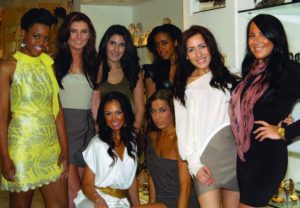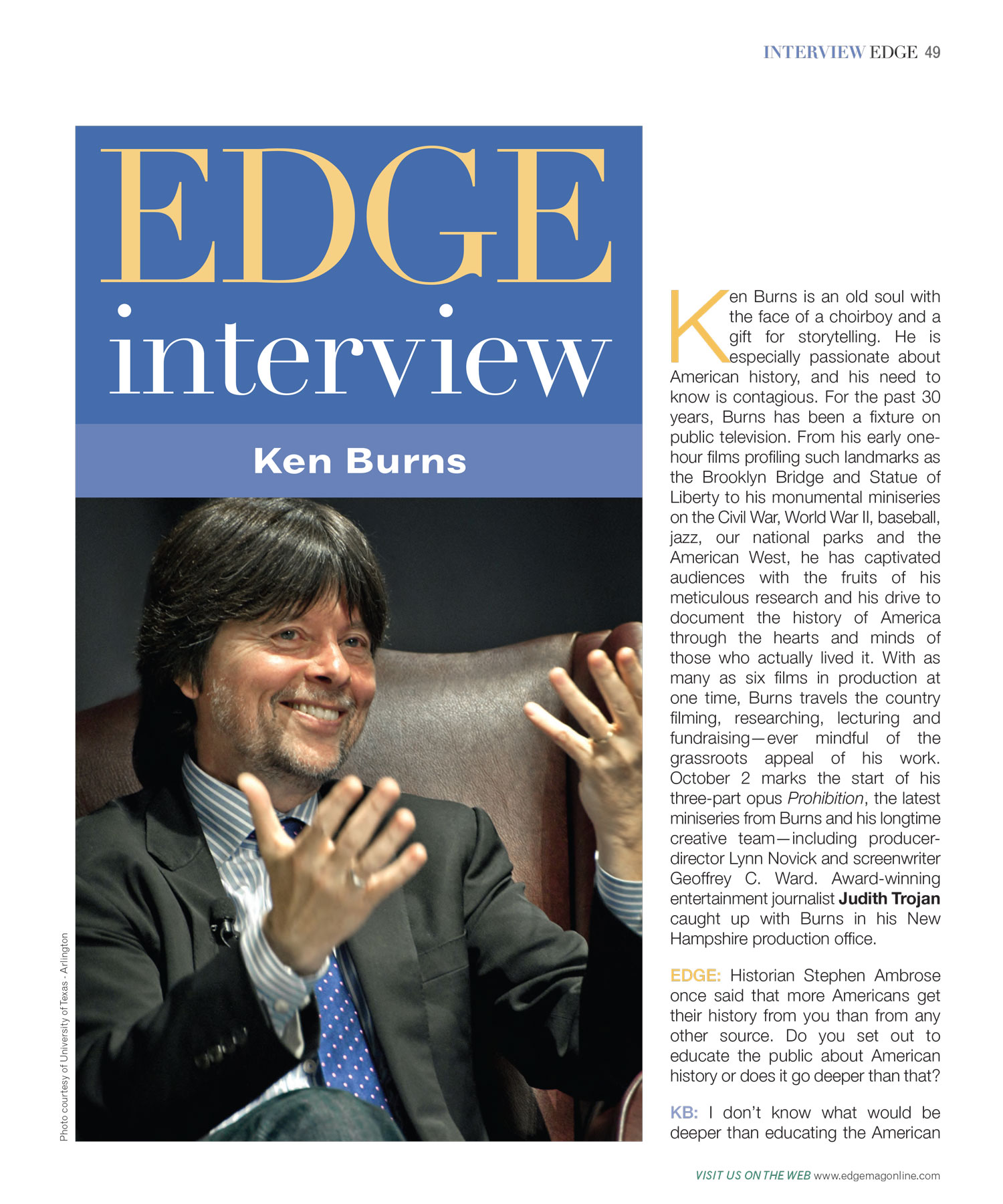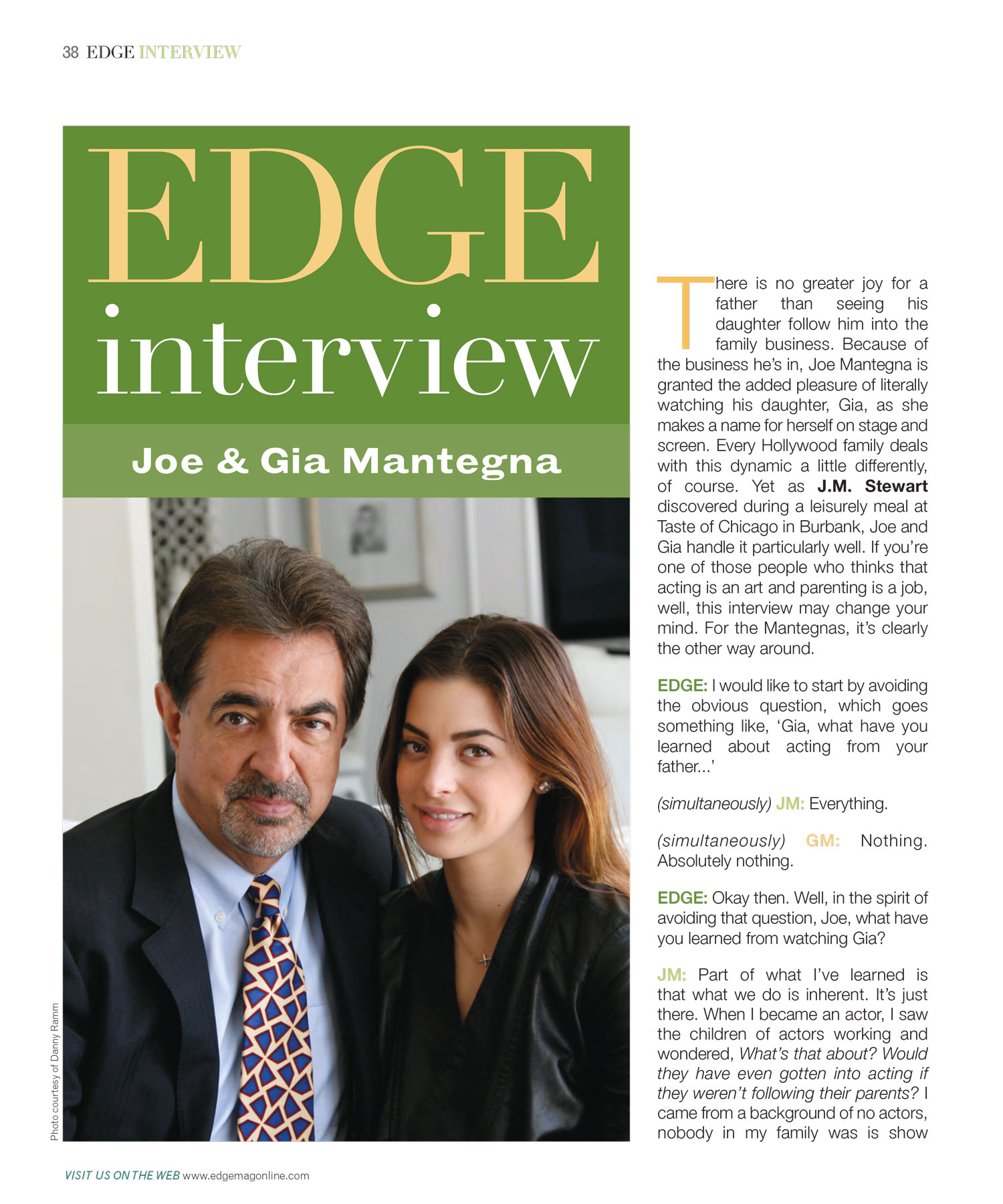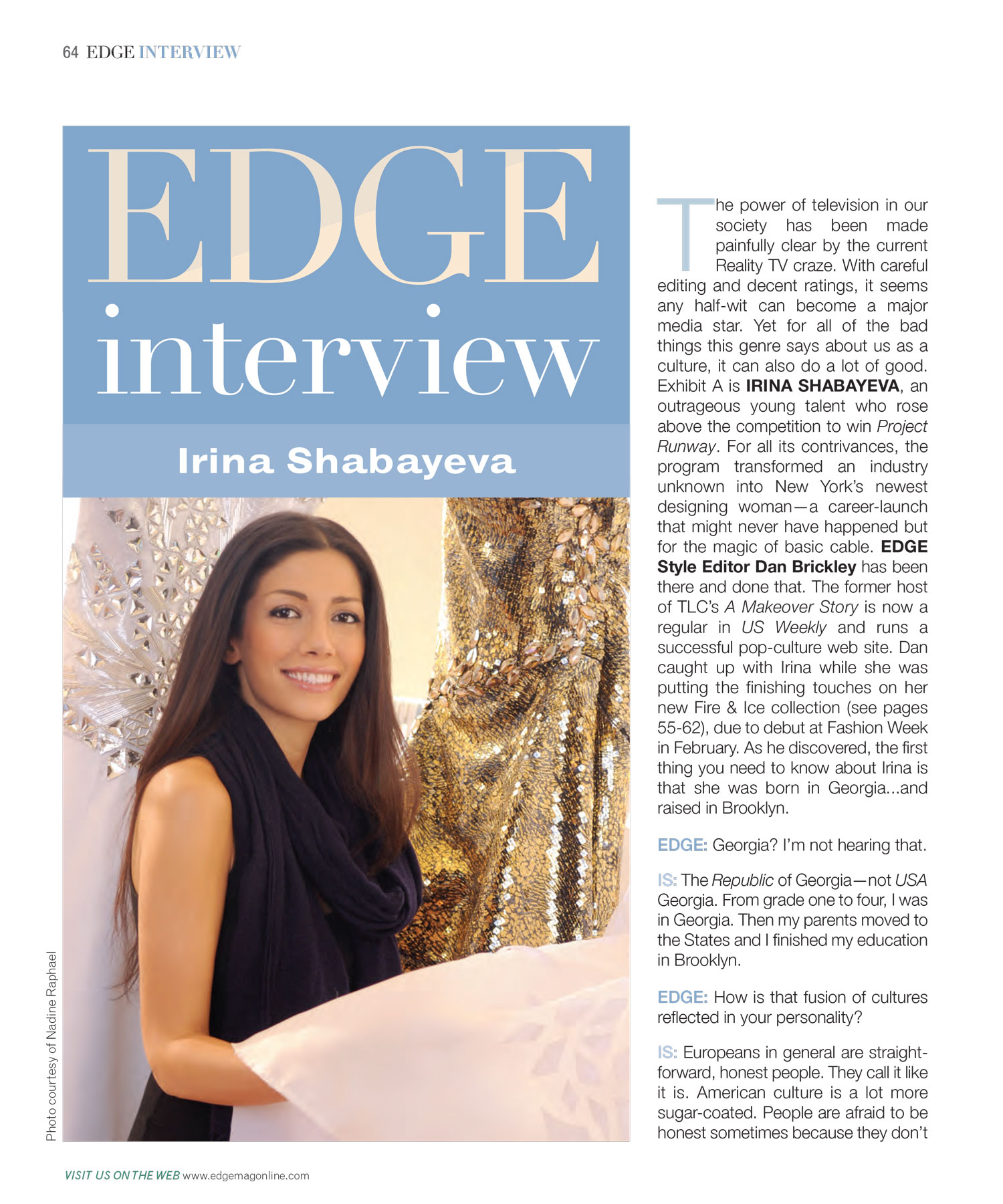On Thursday nights in America, life simply stops for somewhere between 10 and 20 million television viewers as they settle in for the newest episode of Grey’s Anatomy. Sandra Oh is a major reason why. As Dr. Cristina Yang, she plays opposite the series’ title character, Dr. Meredith Grey, who is portrayed by Ellen Pompeo. They lead an ensemble cast that has become a second family to fans since the show first aired seven seasons ago. As J.M. Stewart discovered in this interview, Oh’s knack for creating signature characters (think Arli$$ and Sideways) comes from an astonishingly honest place. Sandra’s greatest talent, however, may be the ability to keep her head and value her craft in a world where performers are measured by SAG Awards and Emmy Nominations. Of which she has plenty, by the way.
EDGE How was it conveyed to you that Grey’s Anatomy was a different kind of medical drama?
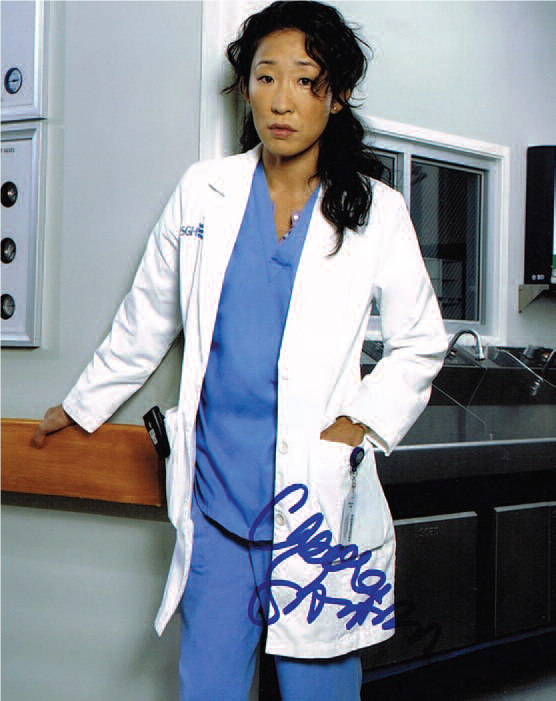
Courtesy of Upper Case Editorial Services
SO: It was never said or expressed formally. The writers and [series creator] Shonda Rhimes found a way of telling this story that just worked. It is basically a classic storyline. There are five acts, each person has a medical issue, and a lot of the time these medical issues reflect what is going on with the characters. I will say, like, at minute 47 you’re going to cry. There’s something about our show that makes people cry. People have a lot of emotional release watching our show. One thing that the show does well in a stylistically different way from any one else’s, is its ability to do comedy and high drama at the same time—within a scene, or within an episode. I think it’s really skillful.
EDGE So when Katherine Heigl’s character, Izzy, lost her husband, we see her baking copious amounts of muffins.
SO: Yes. The way that Izzy deals with her grief is by baking and baking and baking. Inherently, you have a lot of comedy in that. You sustain comedy, comedy, comedy, and then you drop in for the painful truth of it. There has always been that great mix.
EDGE What aspects of the Cristina Yang character are different from you personally?
SO: Cristina Yang is not as emotionally intelligent as I think I am. She is emotionally stunted and anti-social. I don’t consider myself to be either of those things. This is why I wanted to play her so much. Now, as a result of her friendship with Meredith, Cristina has changed. But during the first three years, Cristina was extremely cold emotionally. She had very little compassion or understanding of interpersonal dynamics. I thought that was really interesting to play. My character was so deep in her head. But I felt that she has always been very fair, and compassionate in her own way. Fairly recently, a person said to me, and this was someone I didn’t know, “I really like Cristina. She’s really compassionate.” And, I thought, “Thank you! Thank you for saying that, because it’s totally true! She is compassionate in her way because it comes from a place of fairness.” It’s what I’ve been trying to build for the past 8 years. Cristina is this unfriendly, driven, cutoff person, but has the capacity for compassion.
EDGE Cristina’s tenacity in her work, do you share that?
SO: Tenacity is probably the clearest commonality between Cristina and myself. Also a sense of purpose. It’s not just about overcoming the obstacles of life, but finding a different or clearer perspective of one’s purpose, which in turn makes that tenacity possible. For me, it wasn’t a “choice”, just more of a sense of purpose. Yes, there were obstacles—whether it be the expectations from where my parents wanted me to go, or from people in the industry who said that I was different. The point is not the obstacles themselves, but the sense of purpose that kept me going. That’s the same tenacity that Cristina has—no matter what, she is driven and clear on what it means to be a cardiothoracic surgeon. Nothing is going to stop her from getting there.
EDGE After hiatus is it hard to jump back into Cristina?
SO: Yes. But it’s not so much Cristina. It’s just going back to work. A part of me wants to say No, it’s easy, that it’s muscle-memory. For example, on Arli$$, for Rita, all I had to do was put on those heels—you know, the “costume”—and then the physicality would come back. The comedy would be there because it had so much to do with the physicality.
EDGE You mentioned emotional intelligence. Which Grey’s Anatomy character would you say has the highest EQ?
SO: It’s got to be Bailey or Meredith. Meredith? I’d say Meredith. Cristina would score low on that. Meredith. Meredith one, Bailey two.
EDGE In the movie Sideways, there were four charismatic actors making a very strong movie. Does that make it harder to nail a scene, or easier?
SO: Easier! If you’re working with great actors who also happen to be wonderful people—because that’s not always the same thing—it’s easier. That was definitely one of the highlights of my career. Everyone was good. Every crewmember, every actor, everyone was working at 100 percent. It was a good time, and you can tell on-screen that everyone was having a good time, not just the actors.
EDGE Did you have any idea how well received that movie was going to be?
SO: No, not until I saw Merlot plummet—I really do feel that movie helped to put Pinot on the map!
EDGE Did you know how to ride a motorcycle before you got the part of Stephanie?
SO: I had to learn it and I was terrible at it. I think I almost killed people. At least the scene where I ride off and Thomas Hayden Church is on the back of my bike, I nailed that scene. You only have to nail it once.
EDGE Have you been on a motorcycle since?
SO: No. I would not trust myself on one.
EDGE At that point in your career, most people had known you as Rita, the beleaguered assistant in the HBO series Arli$$. Between the cast and the various sports celebrities on the show, it must have been a crazy set.
SO: My boyfriend at that time would come home and I would tell him who I’d worked with that day and he was like WHAT! I didn’t know anything about sports. All I knew was that some famous sports person was coming into town and there’s a lot more people on set.
EDGE Someone really tall must be a basketball player…someone really big must be a football player….
SO: Seriously, it was like that.
EDGE Did any of them demonstrate any acting ability?
SO: Not that I remember. Professional athletes are athletes, they are not actors. Maybe Laila Ali. I had a scene with her, and she was good.
EDGE Some actors develop characters from the outside-in, and some actors go from the inside-out. Which way do you create your characters?
SO: Probably inside-out. But you have to be able to do both. For example, I have to pretend to be a doctor and that’s all outside-in. That has to do with practicing cutting, and handling the surgical equipment and things like that. My experience as a dancer really helped at outside-in, because you learn through the body how to connect to the character.
EDGE Your first major role was playing Evelyn Lau in the film The Diary of Evelyn Lau. It must have been brutal playing such a tortured soul when you were so young yourself.
SO: I put myself through a lot to play that character. I slept for two months after filming. I had no idea how to control my output. So, I gave everything. It had to do with a lack of experience. Those were the early days. I didn’t know yet that, if one continues giving like I did with Evelyn Lau, one is going to have a breakdown. I have much more skill now. That goes back to the whole inside-out, outsidein thing, being able to build a character more from the outside-in. Evelyn Lau was definitely inside-out. I think for one’s health—both physical and mental—if you have to play a Thai prostitute who is a drug addict, a young actor might think, “Oh, I really have to be a prostitute and do drugs.” No, you don’t. You can just act it. That was the most important creative experience of my life.
EDGE Is fame anything like you thought it was going to be?
SO: No! Can I tell you? Honestly, it was probably one of the most traumatic events in my life. And, ultimately, I think it’s detrimental to being an artist. There’s a lot of struggle. If you want to be famous, awesome! But if you want to continue being an artist, I think fame is a hindrance.
EDGE Why?
SO: Your ability to be authentic is compromised. Fame is detrimental to one’s true artistry because that artistry comes out in the privacy of one’s being with one’s soul— when your soul feels safe in its surrounding to be free, to be authentic. Fame is a heavy, heavy cloak. In my case, I had a tremendous amount of struggle around that feeling of “threat.” There was a period of time when people would be sitting outside my house. How you manage that feeling of threat can go everywhere. It can go into your relationship, go into how you see yourself, and it can go into bad behavior because you start losing control over your privacy in your life. Yet no one’s pointing a gun at you. There’s no one actually “threatening” you. So at the same time you feel like your feelings are unjustified. I’ve thought about this a lot and I have no idea how people who are really famous are able to live and walk around, because they can’t just walk around. I feel that people—especially young people—cannot possibly comprehend the consequences of fame, of not being free. You have to manage your relationship with fame so you can continue to work and still be in the public eye. A lot of people can’t handle it and they leave.
EDGE How has the smartphone generation changed the nature of fame?
SO: Exposure has increased so much. When someone takes a photograph of you when you don’t want them to, it’s denying you “choice.” Because you’ve reached a certain status, you don’t get to have the right to protect your privacy, to not be followed, to have a big fat fight with your spouse in public without it being revealed.
EDGE Fame happened for you organically. You weren’t seeking celebrity, yet that is what you have to deal with now.
SO: It makes me kind of furious that somehow “actor” became synonymous with “celebrity.” I’m a crafts person. I’m an artist. And somehow my total is lessened because of celebrity.
EDGE What’s your take on the roles that are available for women today?
SO: For women, television is our most powerful medium. There are more parts on television for women, and more opportunities for people who are interested in telling a story about a woman. Our show, it’s a woman’s show. Kiera Sedgewick’s show, The Closer, is a woman’s show. Nurse Jackie is centered around Edie Falco. Weeds is centered around Mary Louise–Parker. United States of Tara is centered around Toni Collette. Female cop shows, female buddy shows—there’s more opportunity for women in television. I think that’s a place we need to continue developing. Also, as a woman who is non-white, television has been better for me than film.
EDGE Twenty years ago the ratio of quality male to female roles was around 20:1. How would you explain the up-tick in the number of women’s roles in television?
SO: It must have something to do with the rise of women’s economic power. Classically, women run the finances of the house. If you are in the period of time when you have the most money, let’s say 30 to 50, chances are you’re building your family, so you spend a lot of time at home. You don’t go out. If women are watching television and you want to sell stuff to the household, then you sell it to the woman. That’s what is driving this change. That’s where the industry has more interest and support to do shows that are centered around strong female characters. And the rise of the stronger female character is more prevalent in television than in film. Film is basically all rebooting comic books, and all action movies—it’s about men…plus a young, pretty girl.
EDGE Is there nobility in your industry?
SO: Of course! The business has artists in it; it can’t run without artists. It can’t run without the people who are coming up with the ideas. And there are people who are not on the creative side, who are on the business side, who strive to work with dignity and fairness. Sometimes people slam this town. I’m not saying that all artists are noble—because, lord, they are not—or have integrity. But the best of the best people live in this town. They are creative people who produce great work, who live here and have a strong work ethic. Nobility does exist, but what’s more important is that you make it exist.
EDGE You’ve talked in the past about going into the arts when your parents had hopes for a career in science or medicine. What is your advice on how parents should handle a child saying thanks for the education, but I really want to be in the arts?
SO: Good luck (laughs). I’d say you challenge them on why they want to go. I have a feeling, based on a lot of things going on in this society and pop culture, that the desire to be famous is pushing a lot of kids into either singing or wanting to be in the movies. That’s all fun and good; people come into this business for a bunch of reasons. But it’s so hard to be in the arts. I‘ve always said to people, “You are going to be miserable. Choose whether you’re going to be miserable doing it, or whether you’re going to be more miserable not doing it.” Try to reach out to see what the true motivation is for your child to leave everything behind to pursue the arts. If it’s real, there is nothing you can do to stop it. There was nothing my parents could do to stop it. So don’t challenge them on doing it, just ask Why? If the answer is To be famous, then they could be wasting their youth, their beauty…and chasing a big, empty ghost for a long time.
Editor’s Note: J.M. Stewart lives and works in the Los Angeles area. She interviewed Joe and Gia Mantegna for EDGE last fall.

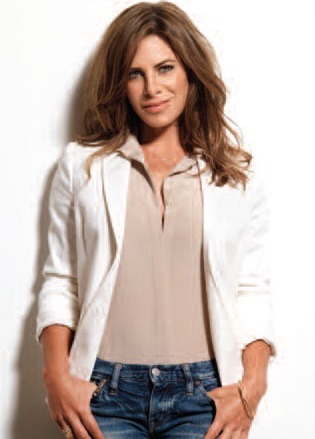
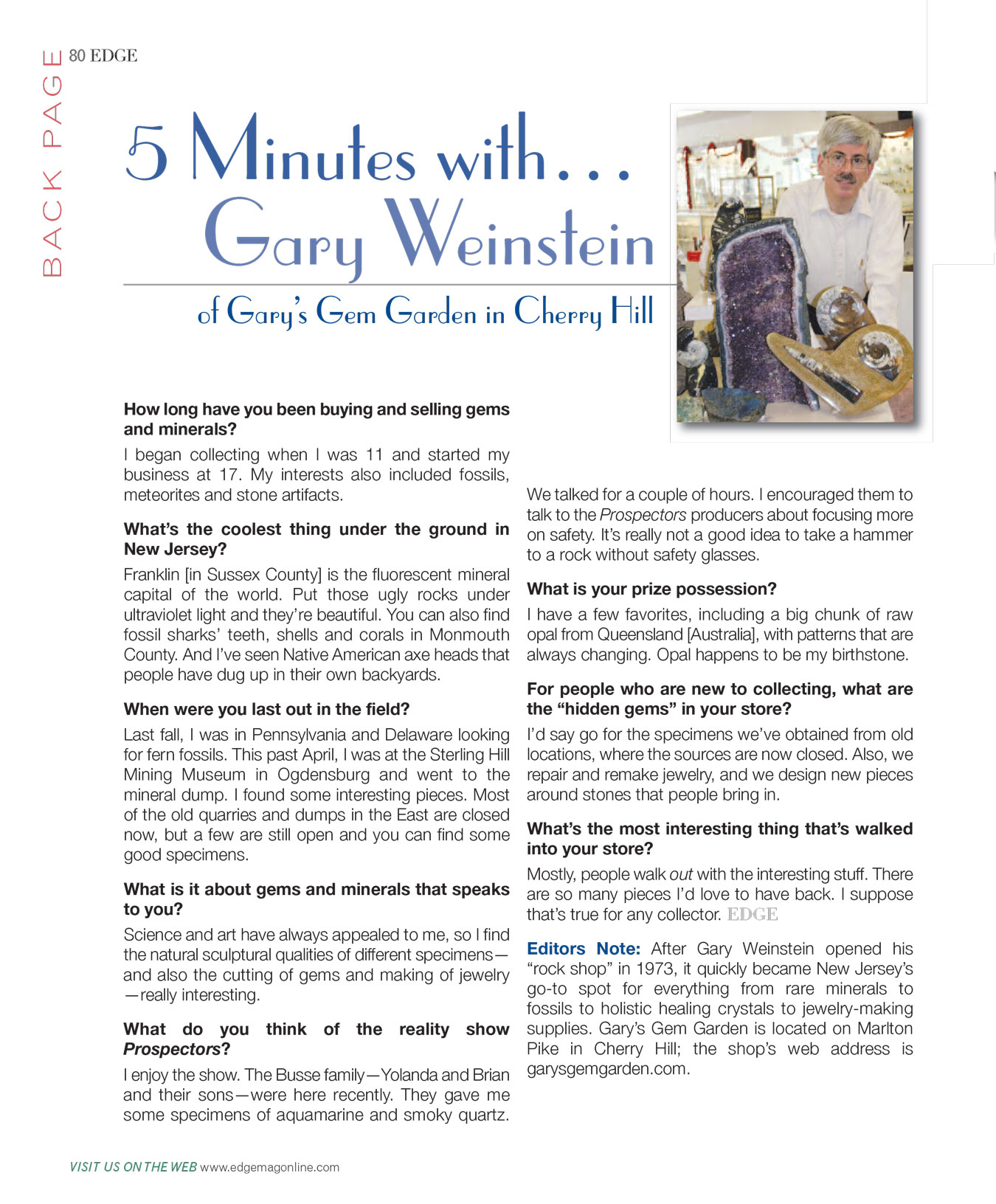
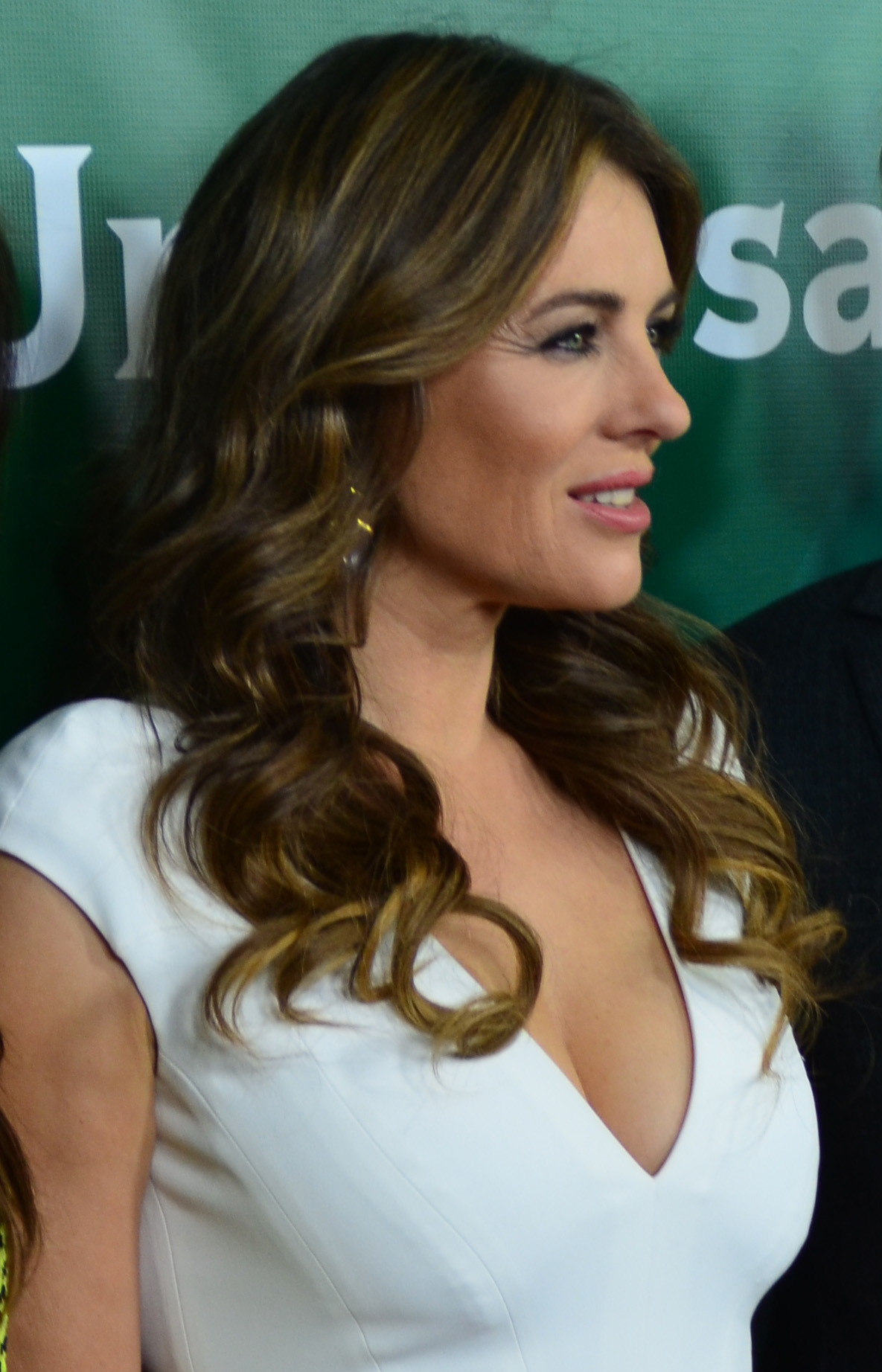
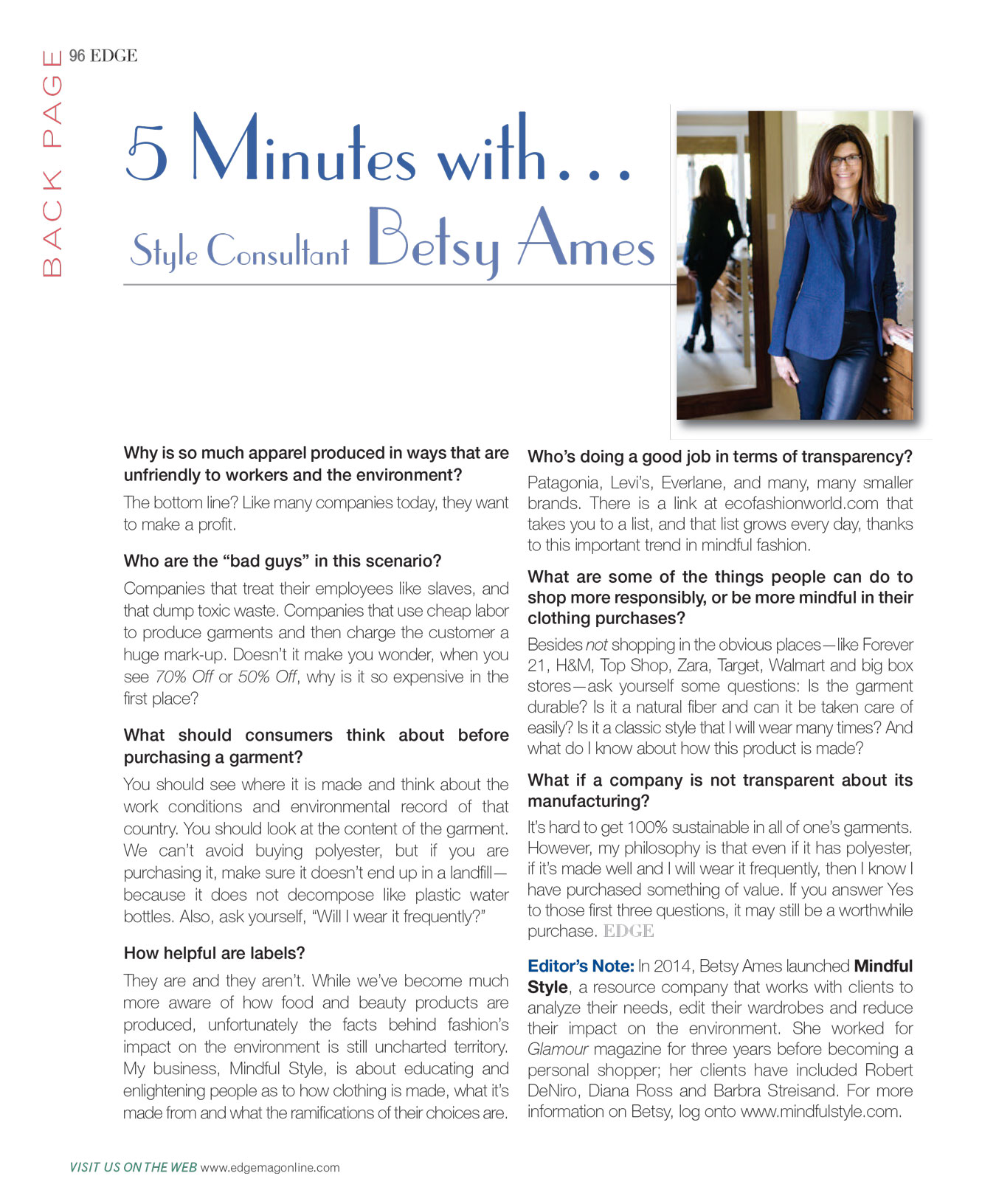
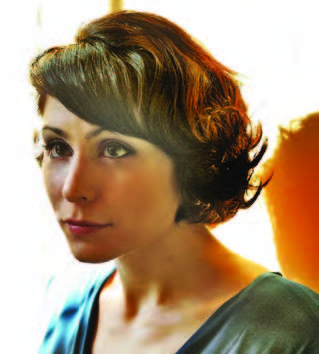
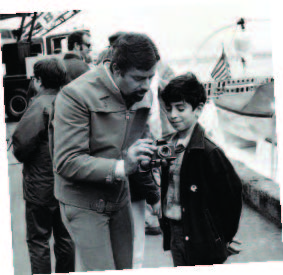 What do you remember about your father when he was filming The Nutty Professor?
What do you remember about your father when he was filming The Nutty Professor?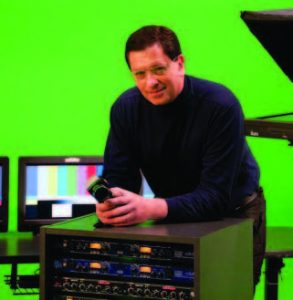
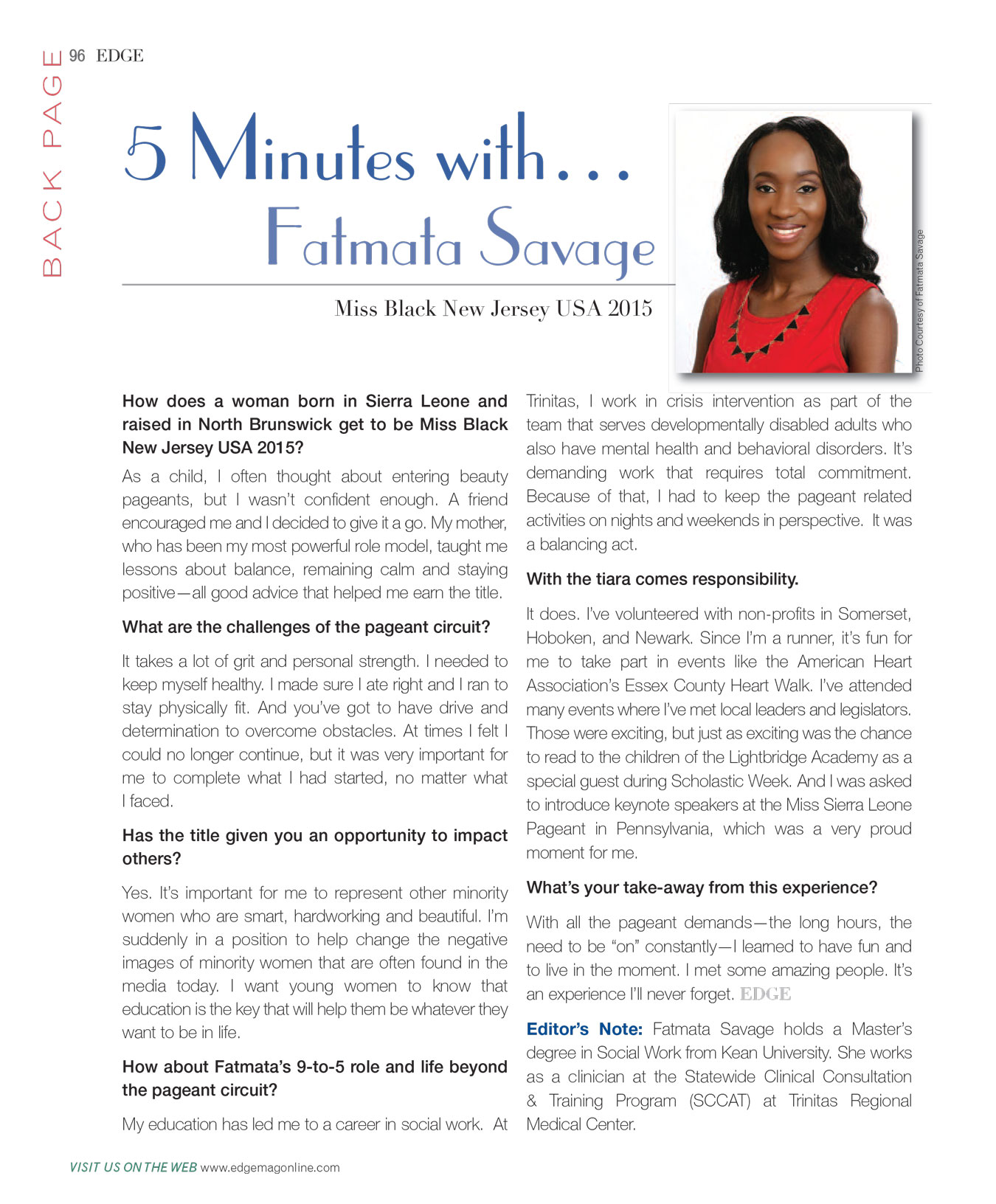
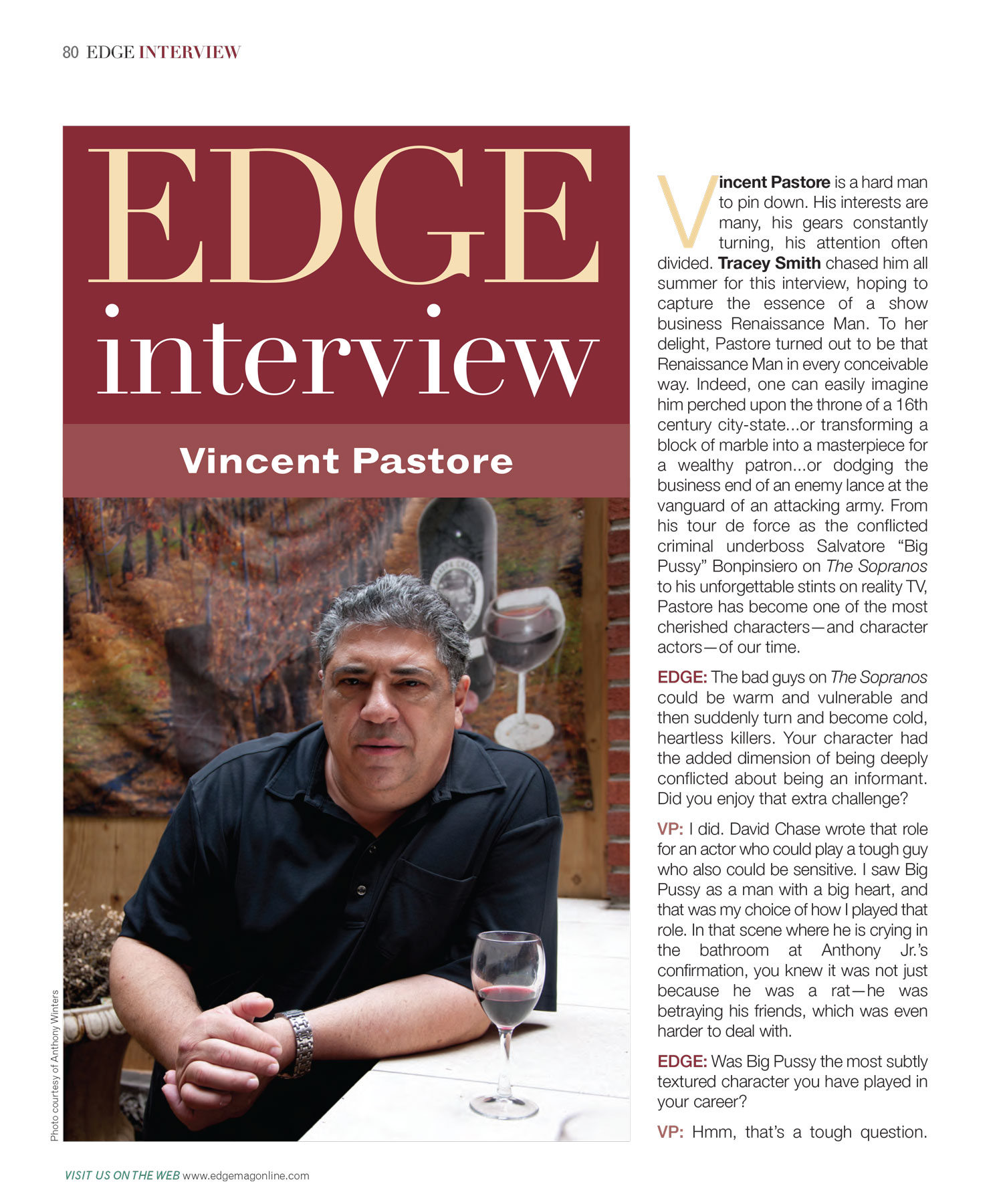
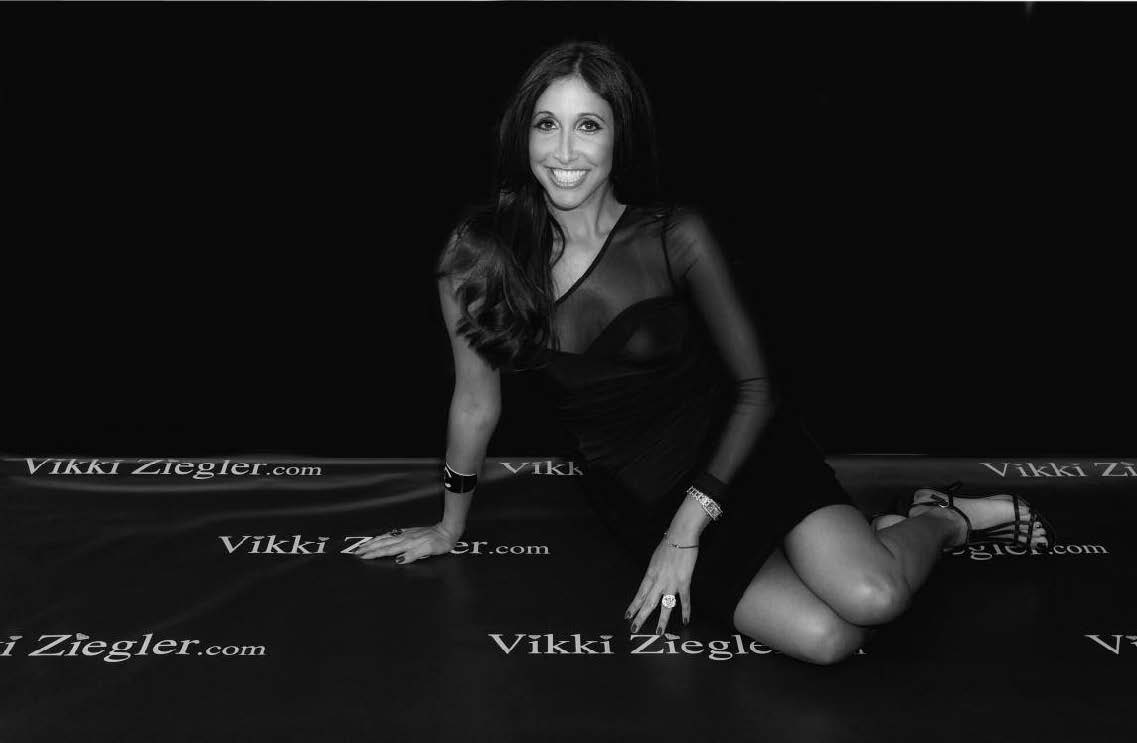
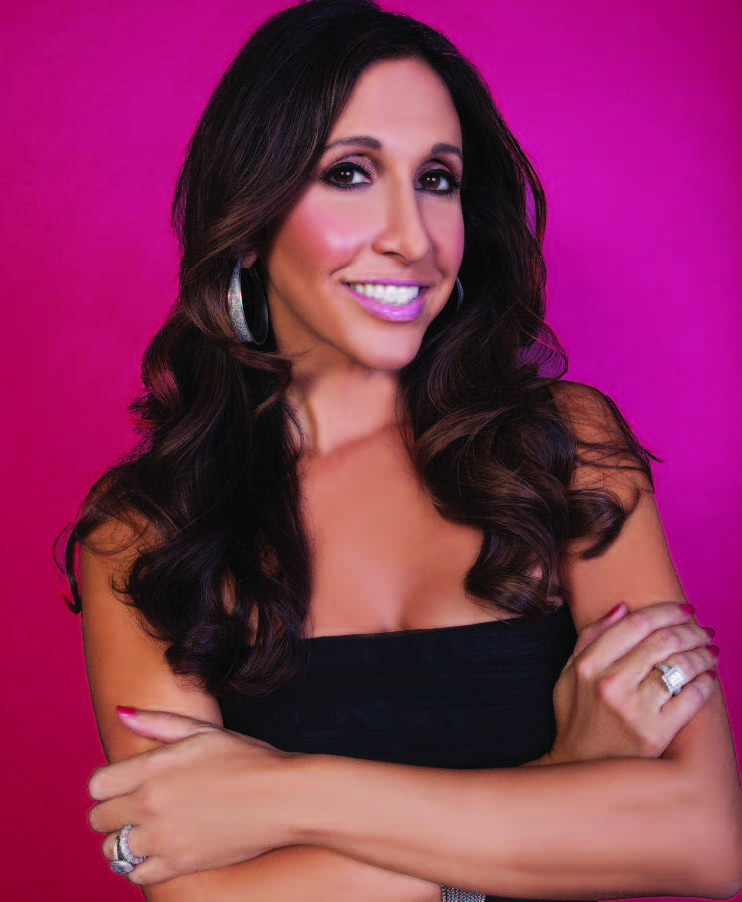
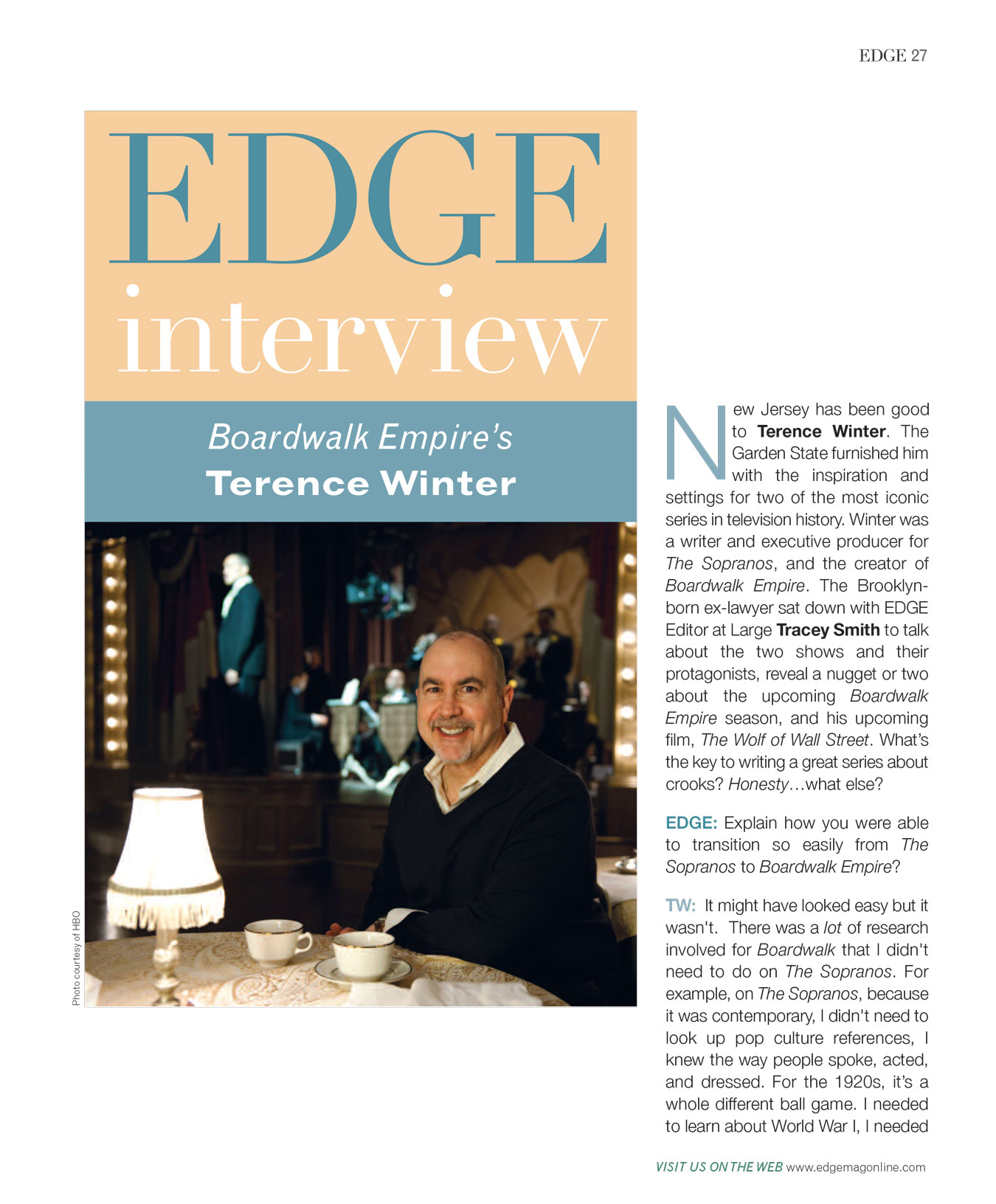
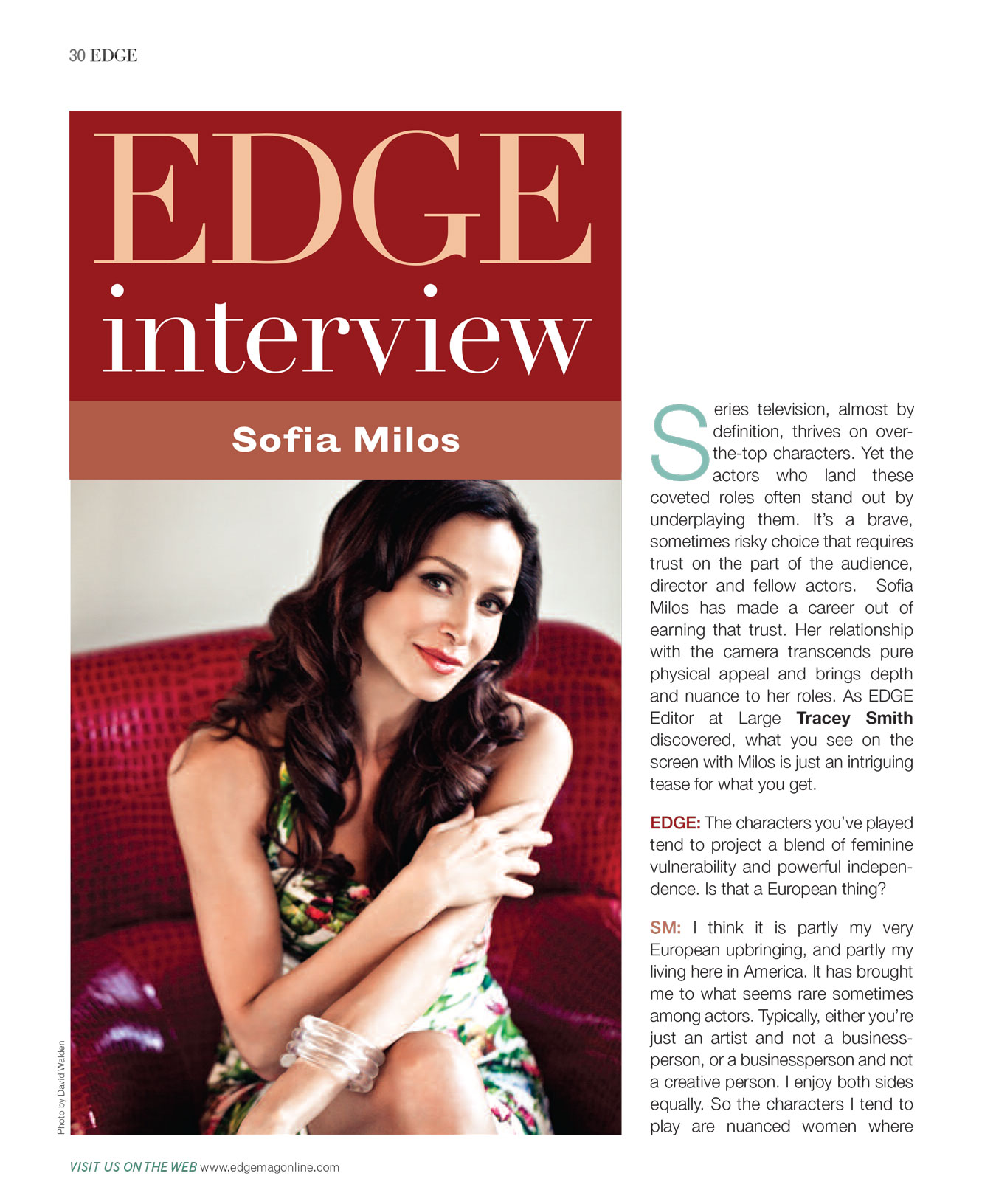

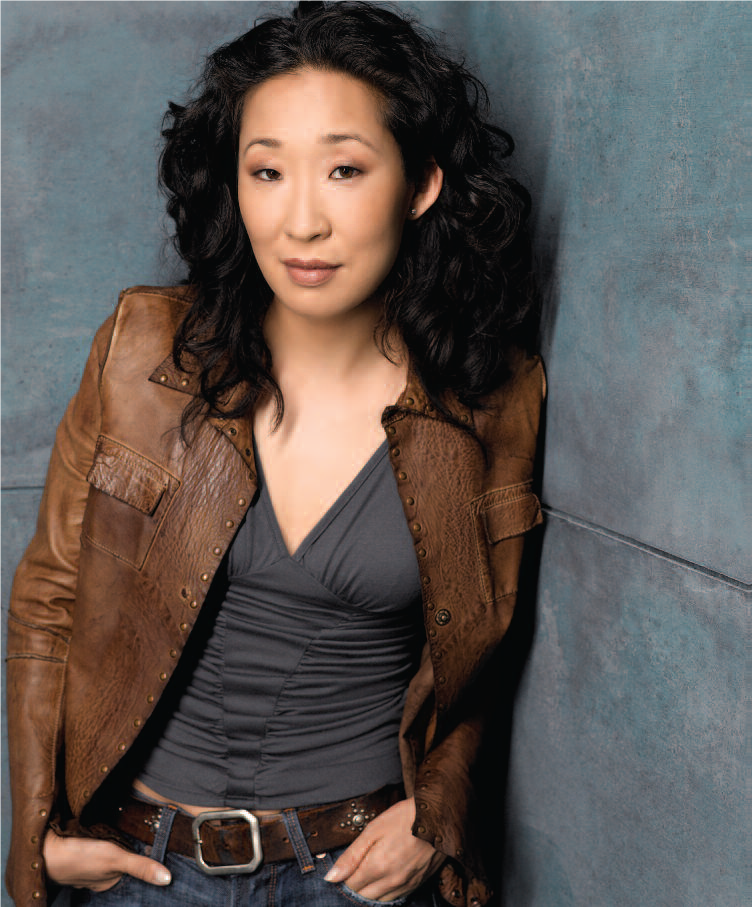
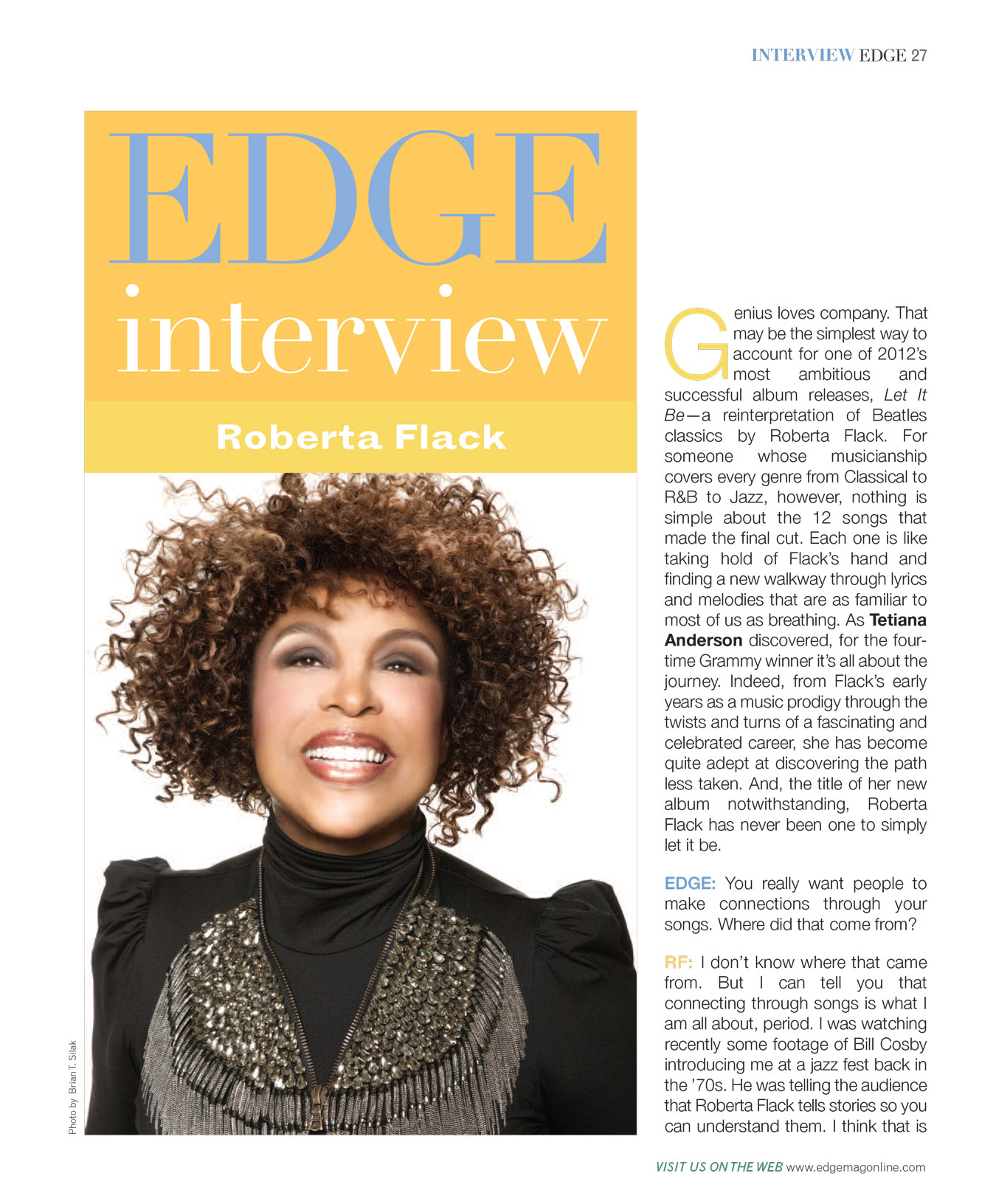
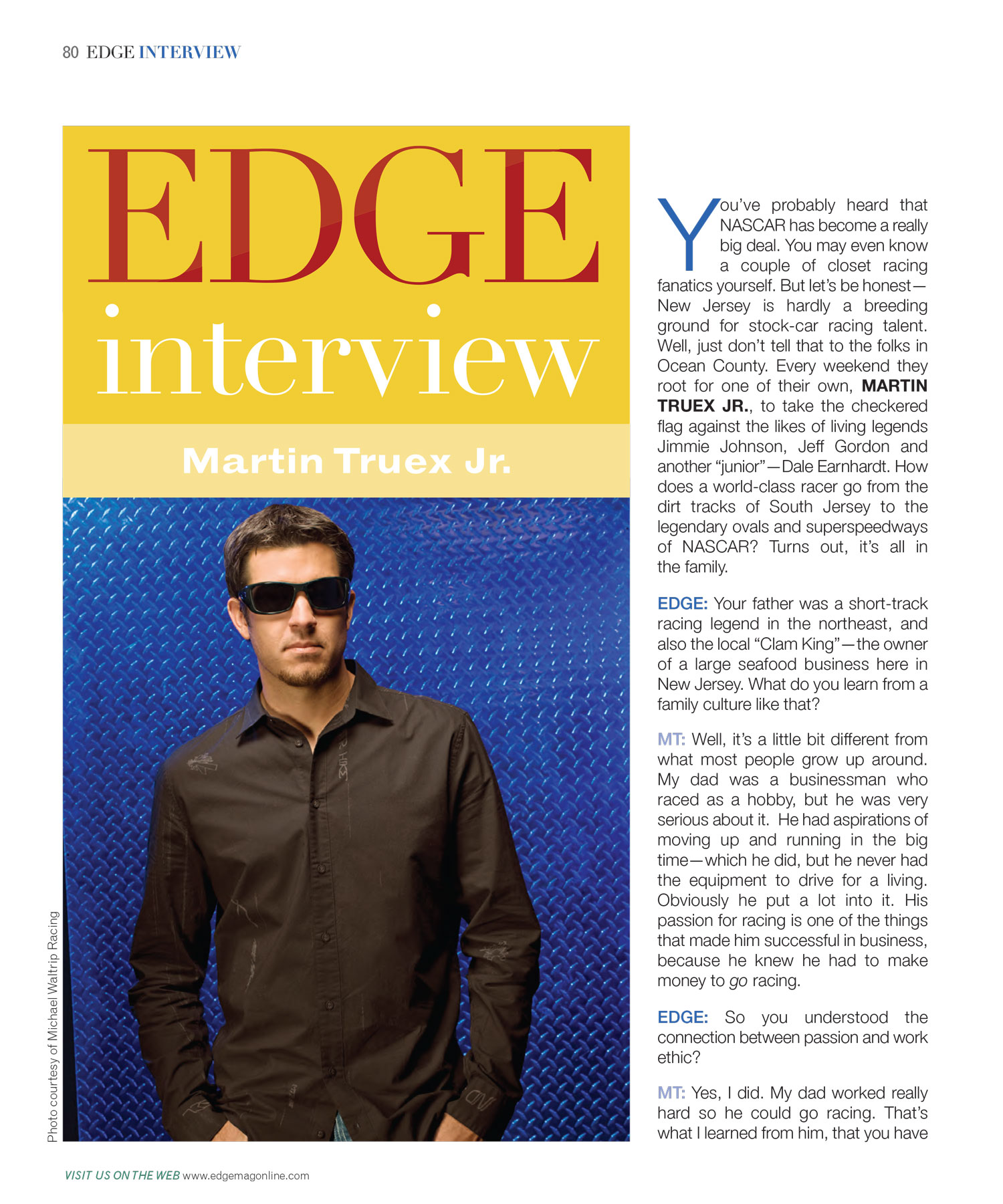
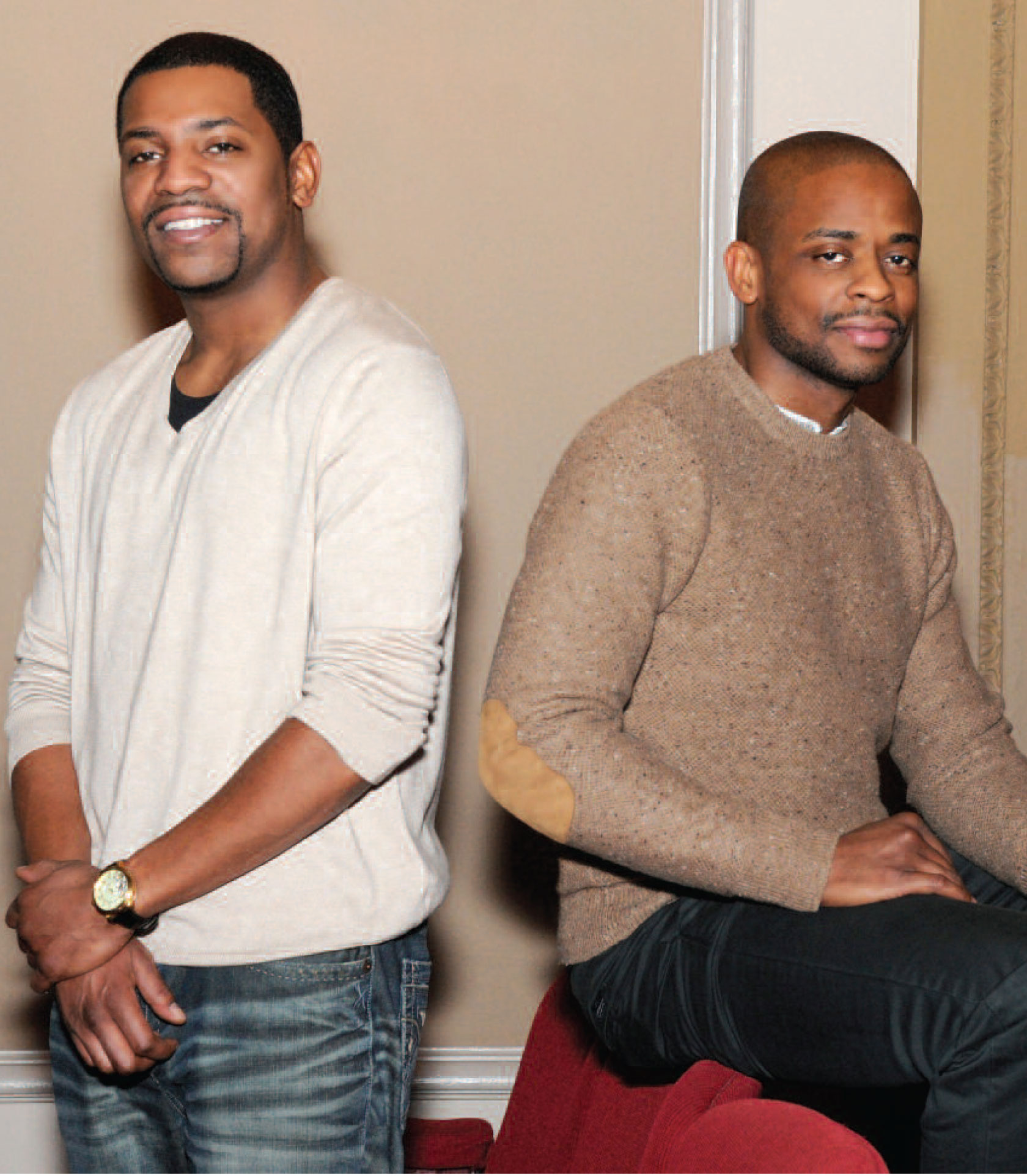
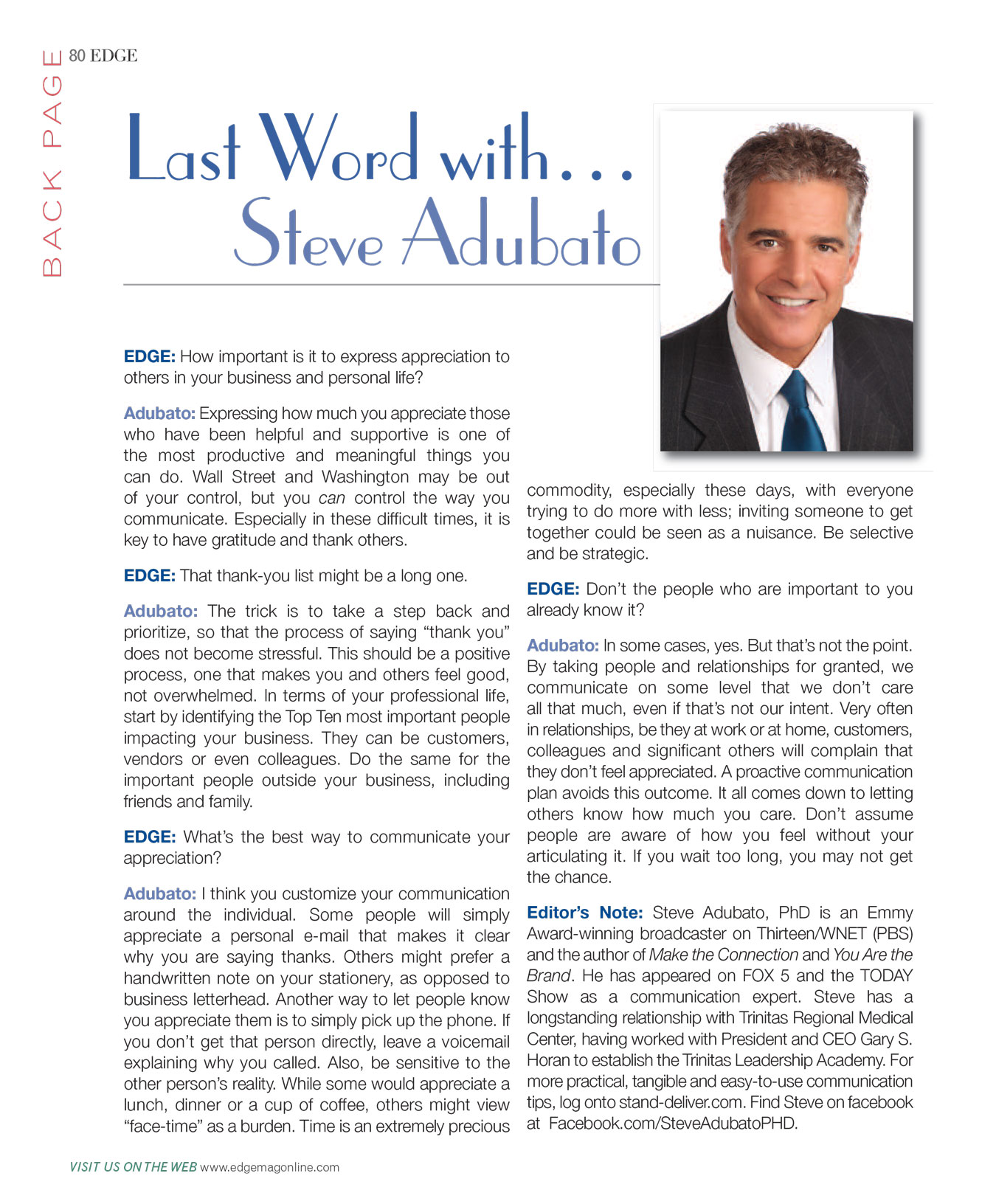
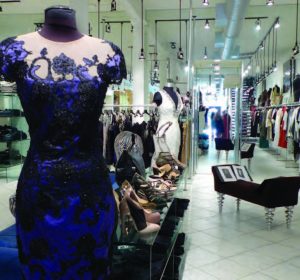 EDGE: Would you say that’s the key difference between working with CoCo Pari as opposed to window-shopping my way down Madison Avenue or store-hopping at a high-end mall?
EDGE: Would you say that’s the key difference between working with CoCo Pari as opposed to window-shopping my way down Madison Avenue or store-hopping at a high-end mall? EDGE: What if I’m a little intimidated by them?
EDGE: What if I’m a little intimidated by them?